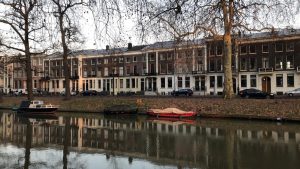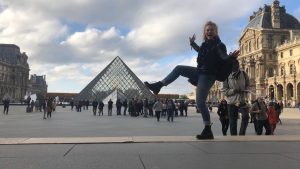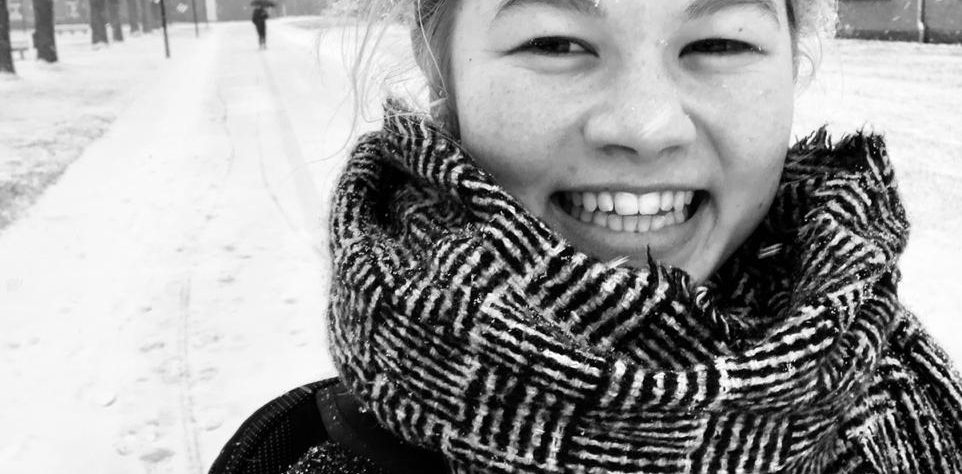Pre-departure:
My pre-departure preparations for my semester exchange began officially in my first year at Stellenbosch University. I remember speaking to a family friend who told me about the exchange opportunities that Stellenbosch offers. With my imagination 1000 bounds ahead of me, I researched all and any universities that were associated with Stellenbosch (“partner universities”). Because I am a law student, I soon realised that this opportunity is offered to students only in their final year. With that in mind, I thought to myself excitedly, “let the four-year count-down begin!”.
Four years down the line, I found myself at the cusp of an adventure to Utrecht University, which is located just outside Amsterdam in the Netherlands. My years of research focused primarily on a destination, as opposed to the practicalities of going on an exchange…
The idealistic picture that had planted itself in my mind refused to account for any form of obstacles that I might encounter along the way. Because I am somewhat of a procrastinator, such obstacles turned out to be plentiful and seemingly never-ending. Do not be fooled; a successful exchange requires a task-orientated approach (an approach I think I lacked in the beginning stages of the exchange process) and meticulous and methodical preparation to ensure that all the points on the (countless) checklists are ticked.
Usually the host university provides one with necessary pieces of information detailing various aspects of the exchange process. These emails tend to be extensive and off-putting. However, the points address important prerequisites, such as the practicalities of obtaining a Visa and securing accommodation. For me, the Visa process turned out to be an obstacle simply because I failed to appreciate the finer details (the extent of documentation required, and additionally that such documentation is required in the Netherlands in its original form). The process may be tedious, but it does not have to be difficult – it just requires a systematic and thorough attitude. Unfortunately I realised this a little late (thank goodness for express courier services!).
The next aspect I would highlight as crucial is securing housing. Just to rewind a little, when assessing potential host universities, the point of “provides accommodation” did not feature in my criteria, as I did not think it a concern at the time. Accordingly, I chose a university which best suited me according to other preferences (incidentally, it did not provide housing). I think this is simply lack of experience. Fast forward to a situation where you have to find accommodation in a city you do not know, with people you do not know, and – most importantly – where you are not physically present in the search. Together, these factors make finding accommodation an incredibly difficult task. It consumes masses of time and energy, without the guarantee of success. Just to complete the picture, it turned out that Utrecht has a housing crisis. I started to appreciate the extent of this on my third consecutive week in a hostel, when a journalist came to report on how many students had to resort to living in a hostel because there were no alternatives.
For these reasons, I would advise that one of the most important points to consider when choosing a partner university is whether or not the university offers accommodation. If, even after having realised a particular university does not provide housing, try to ascertain the dynamics of the housing situation in that particular city, and additionally find groups on Facebook, and any other means (speaking to friends of friends who might know people who live in that city) in order to secure something tangible, preferably prior to arrival.
Experiencing the Netherlands:
As my above paragraph suggests, my landing in the remarkably flat country of the Netherlands was somewhat irregular. I think this set the tone of the six-month stay in a sense, as I had the benefit of realising early on just how different and unpredictable my entire experience would be.

One of my considerations for choosing Utrecht University was the fact that it occupied an impressive position on the global scale of accredited universities, in addition to the fact that it was founded in 1636. Ironically, I don’t think I could have chosen a more modern and forward-thinking university. The buildings themselves reflect the way in which the university enjoys a dual-personality. The external facades are beautifully crafted, and one feels immersed in another time-period altogether. There are also courtyards in the buildings which were welcomed replicas of the Ou Hoof Gebou’s courtyard. However, the interiors of the Law building boast white, modern corridors with elongated windows, as well as plug points at every seat (a luxury that was not lost on me).
My academic experience at Utrecht was inspiring, in every sense of the word, as well as invigorating. This extends to the courses I chose, the manner of lecturing, the facilities, the subject-matter, the lecturers. It is difficult to sum up these sentiments in words – no matter how many I am afforded!
To begin with, the courses I chose are not available at Stellenbosch. Utrecht University offers “inter-disciplinary” modules, which means that a law student is exposed to a variety of perspectives (economics, social sciences, governmental) within one module, as opposed to a purely legal perspective. I found this increasingly beneficial, from both an academic perspective as well as social perspective. I liked the interdisciplinary modules, as there is “communication” between the topics, which provides a very realistic introduction to the issues at play – as in reality, these topics are fluid as opposed to strictly separated. In addition, the modules are geared towards relevance, and are therefore very dynamic and interesting. I think this is supplemented by the calibre of lecturers that teach the topics – they are experts in their particular fields. Because they are so specialised, this often means that one will be taught by a host of different lecturers for one course. My academic exposure differed significantly from the various courses I have taken at Stellenbosch, which I found to have a more traditional and single-track approach and where one lecturer was responsible for a particular course.
The style of teaching to which I was exposed at Utrecht is unlike anything I have ever experienced. For one thing, the interactive approach makes it very difficult for one to exit a lecture without having formed a defendable opinion on the topic covered. There is a lot of emphasis on preparation for classes (which take the form of one lecture and one tutorial per week), and almost everyone puts up their hands to offer their opinion in these classes (a welcome change of attitude in comparison to the silent audience of students at Stellenbosch). In addition, most modules required us to give presentations, or required us to conduct impromptu debating sessions, which I had not previously experienced at Stellenbosch. I found the presentations to be valuable for two main reasons. On the one hand, they are designed to increase one’s oral presentation skills. Simultaneously, however, the topics cover relevant exam material which essentially means that students are teaching their peers about course material. Because of this, it is imperative to be well versed on the topic, and to be able to answer questions about it. Overall, the interactive style leaves one feeling confident about the particular work covered and, more pertinently, confident about their knowledge in general.
In tandem with my academic life, I found that the lifestyle in the Netherlands similarly takes some getting used to. However, once familiar, it is effortless. It is incredibly safe with strict rule-implementation, and there is a high standard of social awareness. The combination of absolute safety and pancake-flat terrain results in cycling being the main mode of transport. I think one of my favourite things was cycling everywhere. Utrecht is also a small town (technically a city) which makes it easy to navigate. Further, and much like Stellenbosch, one of the biggest cities (Amsterdam) lies a mere 20 minutes away! I still marvel at the efficiency of the train systems. Because the system is so comprehensive, I was able to indulge my curiosity and love for travelling and I was able to see most of the Netherlands – mostly during the week and on impulsive decisions.

Return to South Africa:
At our pre-departure meeting, we had all been warned about the low we would probably hit on return from our exchange. Whilst anticipating the worst, I found that I adjusted back into my South African life quite seamlessly. On reflection, I thoroughly enjoyed my exchange experience. It challenged me in ways I had not anticipated and benefitted my in ways I have yet to realise. I experienced a lot of academic growth, in addition to personal growth. I think I have a new found appreciation for South Africa on the one hand (not to mention, a revived appreciation for the impeccable South African weather), in addition to an increased capacity of compassion for individuals living in a foreign land. My experience has also triggered a desire to learn a new language.
I think my exchange has confirmed that temporary visits are very different from moving and living in a different country for an extended period-of-time. While I am admittedly indecisive on this point, I now see myself staying in South Africa which was not the case before I had gone on my exchange. I am however still eager to keep travelling, seeing new places and meeting new people. I think it’s important to engage with the unexpected pros and cons that come with such experiences and to engage with how these experiences challenge preconceptions about the world. I have had my eye on Japan and South America recently, and I am hoping I will get the opportunity to visit sometime soon.

